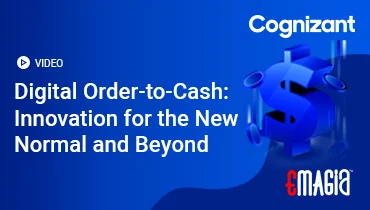Introduction: Streamlining Small Business Billing
Billing is a critical process for small businesses. Manual billing often leads to errors, delayed payments, and reduced cash flow. Advanced billing software helps businesses automate invoice creation, track payments, and improve financial accuracy, allowing owners to focus on growth.
Common Billing Challenges for Small Businesses
- Manual invoice generation prone to errors
- Tracking overdue payments and customer follow-ups
- Managing multiple clients and projects simultaneously
- Handling recurring invoices and subscriptions
- Integrating billing with accounting and CRM systems
Core Features of Modern Billing Software
Invoice Generation and Customization
Modern billing software enables quick creation of professional invoices. Businesses can add logos, client details, taxes, and payment terms. Customization ensures invoices are accurate, professional, and compliant with regulations.
Recurring Billing and Subscription Management
For service businesses or subscription models, recurring billing automation is essential. It saves time, reduces errors, and ensures clients are billed consistently. Software can handle upgrades, downgrades, and cancellations automatically.
Mobile Billing and Remote Access
Many small businesses operate on the go. Mobile-enabled billing software allows creating invoices, tracking payments, and sending reminders directly from a smartphone or tablet.
Integration with Accounting and CRM
Integrating billing software with accounting and CRM systems ensures seamless synchronization of invoices, payments, and client information. This reduces manual reconciliation and improves operational efficiency.
Automation and AI in Billing Software
Automated Payment Reminders
Late payments impact cash flow. Automated reminders based on payment history and overdue amounts improve collection rates without manual intervention.
Expense Categorization
AI-driven categorization automatically matches expenses to invoices and client accounts. This simplifies bookkeeping and ensures accurate reporting.
Predictive Analytics and Cash Flow Forecasting
Machine learning algorithms can analyze client payment patterns to predict late payments, forecast cash flow, and prioritize follow-ups.
Benefits of Implementing Billing Software
Efficiency and Time Savings
Automation reduces manual tasks, minimizes errors, and frees up resources for strategic activities.
Improved Cash Flow
Timely invoicing and automated reminders help maintain consistent cash flow, reducing the risk of overdue payments.
Professional Client Experience
Customized invoices, automated communications, and online payment options enhance client satisfaction and strengthen relationships.
Scalability for Business Growth
As businesses expand, billing software can handle more clients, higher invoice volumes, and complex subscription models without increasing administrative workload.
Advanced Workflows for Efficient Billing
Billing workflows are essential for ensuring invoices are accurate, payments are collected on time, and administrative overhead is minimized. Modern billing software allows small businesses to create automated workflows for recurring tasks, approvals, and follow-ups, reducing manual intervention.
Custom Workflow Configuration
Businesses can design workflows tailored to their operations. For example, service businesses can set up workflows that automatically generate invoices after a project milestone is completed, while subscription-based businesses can automate recurring invoices and adjust for plan changes.
Automated Payment Follow-Ups
Late payments can disrupt cash flow. Automated payment reminders prioritize clients based on overdue amounts and historical payment behavior. Notifications can be sent via email, SMS, or in-app messaging, ensuring prompt attention without manual tracking.
Templates and Professional Invoices
Templates help maintain consistency and professionalism in billing. Modern software provides flexible templates that include client information, line items, taxes, discounts, and payment terms.
Recurring and Subscription Invoice Templates
For recurring services, templates can be configured to automatically generate invoices at scheduled intervals. Subscription changes, such as upgrades or cancellations, are reflected in real-time, ensuring accurate billing.
Expense and Time Tracking Templates
Templates can also incorporate billable hours and expenses. Service providers can log time and costs for projects, which automatically populate invoices, reducing errors and administrative work.
Team Collaboration and Multi-User Access
As businesses grow, multiple team members may need access to billing functions. Advanced billing software supports multi-user access with role-based permissions.
Role-Based Access
Finance, sales, and project management teams can access relevant information without compromising security. Each user has permissions aligned with their responsibilities, ensuring data integrity.
Collaboration Tools
Integrated notes, notifications, and task assignments allow teams to communicate effectively within the billing platform. Queries related to invoices, approvals, or client communication can be tracked and resolved efficiently.
Analytics and Reporting for Better Financial Insights
Data-driven decision-making is critical for small businesses. Modern billing software includes dashboards that provide insights into revenue trends, outstanding invoices, client payment behavior, and overall financial health.
Revenue Tracking
Businesses can monitor total revenue, recurring income, and overdue balances. Advanced filters allow analysis by client, project, or date range, helping management make informed financial decisions.
Accounts Receivable Insights
Monitoring overdue invoices and payment trends helps identify slow-paying clients and potential cash flow risks. Predictive analytics can forecast future payments and suggest proactive collection strategies.
Client Payment Behavior Analysis
Software can detect patterns in client payments, such as delays or partial payments. Businesses can then tailor communication strategies to encourage timely payment and improve relationships.
Subscription and SaaS Billing Management
Many small businesses rely on subscription models or SaaS products. Billing software helps automate recurring billing cycles, manage plan changes, and ensure revenue recognition compliance.
Automated Recurring Billing
Invoices are generated automatically for each subscription period. Payment reminders are sent ahead of due dates to ensure on-time collection, reducing the administrative burden on finance teams.
Revenue Recognition Compliance
Software automatically adjusts revenue based on upgrades, downgrades, and cancellations, ensuring financial statements reflect accurate earnings and comply with accounting standards.
Mobile and Cloud Capabilities
Small business owners often need access to billing on the go. Mobile apps and cloud-based solutions allow real-time invoice creation, payment tracking, and reporting from anywhere.
Real-Time Notifications
Instant alerts when invoices are viewed, paid, or overdue help businesses respond quickly to client queries and maintain strong relationships.
Secure Cloud Storage
All financial data is stored securely in the cloud. Backup and encryption ensure data safety while enabling access from multiple devices for team members and managers.
Case Studies: Billing Software in Action
Real-world examples illustrate the benefits of advanced billing software for small businesses.
Service-Based Business
A digital marketing agency automated project-based billing. Invoice generation time dropped by 70%, while cash flow improved by 30% within three months, allowing staff to focus on client projects.
Subscription-Based Business
A SaaS startup implemented automated recurring billing. Revenue recognition accuracy improved, and subscription upgrades were processed without manual adjustments, freeing finance teams for strategic planning.
Retail Business
A retail store integrated billing with inventory management. Automatic stock adjustments and invoice generation reduced errors, ensuring accurate client billing and stock tracking.
Advanced Reporting and Dashboard Analytics
Comprehensive reporting is essential for small businesses to understand their financial health. Modern billing software provides dashboards that offer insights into revenue, outstanding invoices, client payment patterns, and overall cash flow trends.
Customizable Reports
Businesses can generate reports tailored to their needs, including revenue summaries, overdue invoices, recurring payments, and client-specific data. Customization allows businesses to track key performance indicators (KPIs) and make informed decisions.
Visual Analytics and Charts
Graphical representations such as bar charts, line graphs, and pie charts help visualize trends in revenue, outstanding receivables, and payment behaviors. Visual insights enable faster decision-making compared to manual spreadsheets.
Automated Reporting
Automated reports can be scheduled and delivered to stakeholders at regular intervals. This ensures management is always informed about financial performance without manual intervention.
Invoice Templates and Documentation
Consistent and professional invoice templates enhance brand credibility and reduce errors in billing. Templates can include detailed line items, taxes, discounts, and payment terms.
Recurring Invoice Templates
Recurring invoices are crucial for subscription-based businesses. Templates automate the generation and delivery of invoices, including any adjustments due to subscription plan changes or add-ons.
Expense and Time Integration
Templates can integrate billable hours, expenses, and project milestones directly into invoices. This ensures accurate client billing and reduces manual calculations.
Security and Compliance Features
Security is critical when handling sensitive financial data. Modern billing software incorporates encryption, role-based access, and compliance with accounting and tax regulations.
Data Encryption
All client and financial data is encrypted during storage and transmission. This protects against unauthorized access and ensures confidentiality.
Role-Based Access
Multi-user billing systems allow administrators to assign roles with specific permissions. This ensures team members can access only the data relevant to their responsibilities.
Regulatory Compliance
Billing software ensures that invoices comply with local tax laws, accounting standards, and industry regulations. Automated tax calculations reduce the risk of non-compliance penalties.
Scalability and Multi-Currency Support
As businesses grow, billing software must scale to handle more clients, higher transaction volumes, and global operations.
Multi-Currency and International Payments
Global businesses can issue invoices in multiple currencies and accept international payments. Automated currency conversion and exchange rate tracking simplify cross-border billing.
Multi-User and Multi-Project Management
Software can manage multiple teams, projects, and client accounts simultaneously. This scalability ensures growing businesses do not face operational bottlenecks.
Return on Investment (ROI) and Business Impact
Investing in billing software offers measurable benefits in time savings, error reduction, and cash flow improvement.
Time and Cost Savings
Automation reduces manual effort, freeing staff to focus on revenue-generating activities. Businesses save hours weekly on invoice generation, payment follow-ups, and reporting.
Improved Cash Flow
Automated payment reminders, recurring billing, and predictive analytics improve timely collections, reducing overdue accounts and maintaining consistent cash flow.
Enhanced Client Experience
Professional, accurate invoices and convenient online payment options enhance client satisfaction, strengthen relationships, and encourage repeat business.
Best Practices for Small Business Billing
Maintain Accurate Client Data
Ensure client details, billing addresses, and payment terms are updated regularly to prevent delays and errors in invoicing.
Automate Where Possible
Use automation for recurring invoices, payment reminders, and reporting. Automation saves time and reduces the risk of errors.
Leverage Analytics
Regularly monitor dashboards and reports to understand client payment behavior, revenue trends, and outstanding receivables. Use this data to make proactive decisions.
Regularly Update Templates and Processes
Invoice templates and billing workflows should be reviewed periodically to reflect changes in business operations, client requirements, or regulatory compliance.
How Emagia Helps Small Businesses Optimize Billing
Emagia provides a comprehensive solution for small businesses looking to streamline billing, automate invoicing, and gain actionable insights into financial operations. Its features go beyond standard billing software to address common challenges in small business finance.
Automated Invoicing and Payment Tracking
Emagia automates invoice generation for recurring and one-time services. Payment tracking and automated reminders ensure timely collections, improving cash flow and reducing administrative workload.
Integrated Financial Management
The platform integrates billing with accounting, CRM, and project management systems. This ensures accurate data synchronization, reduces reconciliation errors, and provides a holistic view of the business’s financial health.
Predictive Analytics and Reporting
Emagia’s analytics dashboards provide insights into revenue trends, overdue invoices, and client payment behavior. Predictive analytics forecast potential late payments, enabling proactive measures for collections.
Scalable and Secure Solutions
Emagia supports multi-user access, role-based permissions, and secure cloud storage. Businesses can scale operations without compromising security or efficiency, making it ideal for growing SMEs.
Advanced Use Cases of Billing Software
Service-Based Businesses
Marketing agencies, consulting firms, and freelancers can automate project-based invoicing, track billable hours, and manage client expenses seamlessly. Automation reduces errors and saves significant administrative time.
Subscription-Based Businesses
SaaS companies and subscription services benefit from automated recurring billing, plan management, and revenue recognition. Accurate and timely billing improves client satisfaction and reduces churn.
Retail and E-commerce Businesses
Retail shops and online stores can integrate billing with inventory management, ensuring stock levels and invoice amounts are accurate. Automated sales reports and reconciliation simplify operations.
Freelancers and Small Teams
Independent professionals can issue invoices quickly, accept online payments, and track overdue accounts efficiently. Mobile billing features allow work from anywhere without delays in payment collection.
FAQs – Common Questions About Billing Software for Small Business
What is billing software for small business?
Billing software is a digital solution that automates invoice creation, payment tracking, and financial reporting for small businesses.
How does recurring billing work?
Recurring billing allows businesses to automatically generate invoices at predefined intervals for subscription services or ongoing projects.
Can billing software integrate with accounting tools?
Yes, most modern billing software, including Emagia, integrates seamlessly with accounting systems, CRM platforms, and project management tools.
How does billing software improve cash flow?
Automation of invoices, payment reminders, and predictive analytics ensures timely collections, reducing overdue accounts and maintaining steady cash flow.
Is it secure to use cloud-based billing software?
Yes, secure cloud-based platforms use encryption, role-based access, and backup systems to protect sensitive financial data.
What are the benefits of analytics in billing software?
Analytics provides insights into revenue trends, client payment behaviors, outstanding invoices, and financial forecasting for informed decision-making.
Can billing software handle multi-currency transactions?
Yes, modern billing software supports multi-currency invoicing and international payment processing, simplifying global business operations.
How do small businesses choose the best billing software?
Consider features like automation, reporting, integrations, scalability, mobile access, and user-friendliness when selecting billing software.
Does billing software reduce manual errors?
Absolutely, automation reduces data entry errors, ensures accurate calculations, and maintains compliance with accounting and tax standards.
What types of businesses benefit from billing software?
Service providers, subscription-based businesses, retail stores, freelancers, startups, and small teams all benefit from streamlined billing processes.



